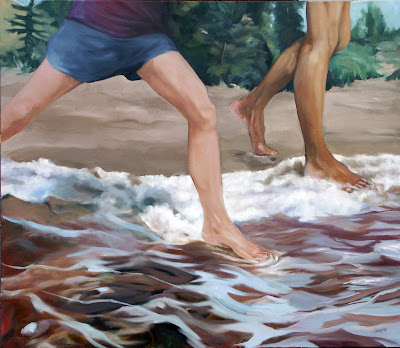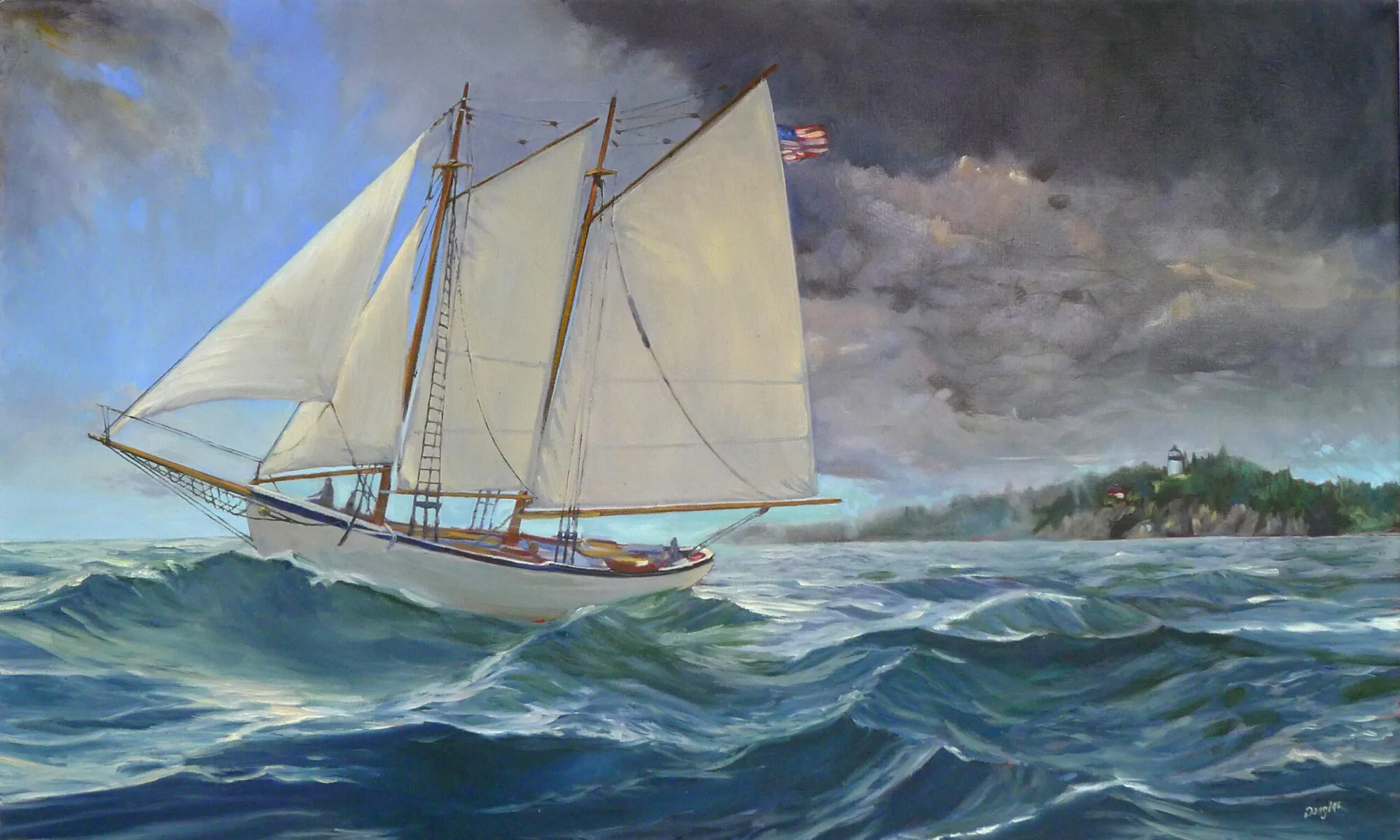Out here in the hinterlands, we haven’t forgotten how to waste time productively.
 |
| Running, by Carol L. Douglas |
I enjoyed reading Tim Wu’s reflections on why Americans don’t have hobbies, except that I don’t believe a word of it. I agree with him that leisure is the basis of culture. But I see no sign of its demise.
I teach a lot of people who are dedicated hobbyists. They pursue excellence in painting because they love to paint, and they get satisfaction from constantly improving their skills. That’s the very definition of ‘amateur,’ which derives from Latin amatus, the past participle of amare: ‘to love’.
Many of them paint as well as some professionals. The difference is that they aren’t pursuing sales. That keeps the joy in painting. Being a professional artist is as entrepreneurial as it is creative, and that is a lot like what they left behind at the office.
 |
| Hiking boots, by Carol L. Douglas. |
Yes, I have hobbies separate from my work. In fact, I got thinking about Wu’s essay when I ordered a new pair of ice skates. (They are my first brand-new pair ever.) I have a canoe, snowshoes, hiking boots, three sewing machines, and a woodshop, and I use them all.
Is the problem young people, so sunk into their screen time? I don’t see it. Two of my daughters are passionate cooks, a hobby that seems to have exploded in popularity in recent years. The third has a 4X4 and miles of trails. My son is recording an album of music over his winter break. One of my favorite young people is passionately interested in aerial gymnastics. No, she’s not training for the circus; she just likes it.
 |
| Butter, by Carol L. Douglas |
Many Americans pursue hobbies that were toil a generation ago. For example, my friend Toby has an inexplicable love of canning. She’s got all the best equipment and skills to make a 19th century housewife proud. It’s fun because, in our 21st century world, it’s separated from drudgery.
The same is true of small-scale animal husbandry. The backyard chicken trend has been increasing in popularity for the past decade.
 |
| Spring, by Carol L. Douglas |
One of my kids loves posting photos to Instagram. She’s not trying to be a social-media sensation; she just likes to share her weird world with others. A generation ago, she might have invested in a darkroom and SLR camera. Worse, she might have invited you over and pulled out her carousel projector and 200 hundred slides of her most recent trip.
Then she would have been called an “amateur photographer.” It’s still the same thing today, even when it’s done on a cell phone. Hobbies have morphed, not disappeared.
Professor Wu’s essay falls in the category of “the sky is falling” opinion piece at which the New York Times excels. But, fear not, good sir! Out here in the hinterlands, we haven’t forgotten how to waste time.




